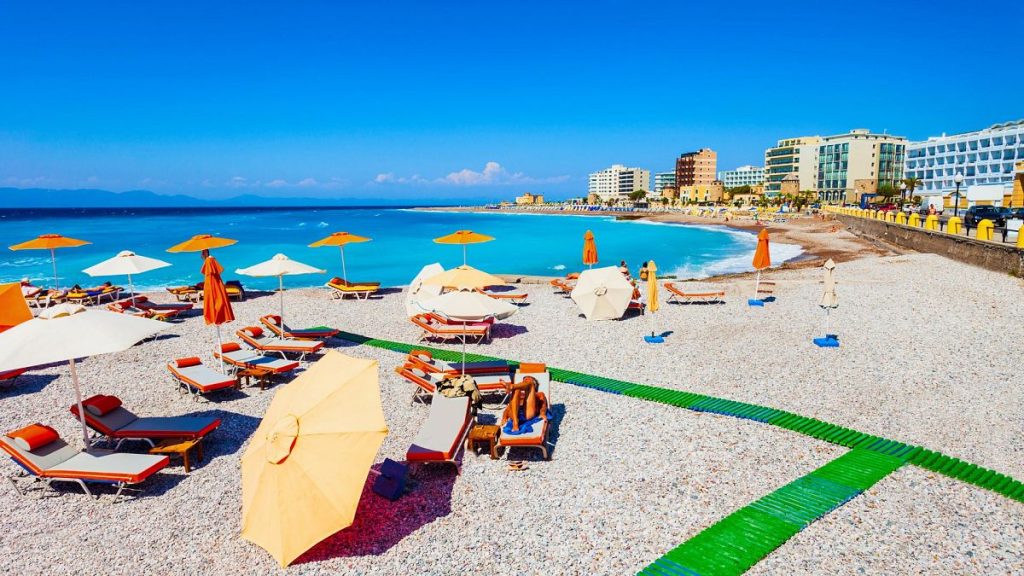Greek locals have become increasingly frustrated with the sight of sunbed-covered beaches, leading to the implementation of new measures to combat overcrowding. Drones are being used to patrol beaches and enforce rules that prohibit establishments without a permit from setting up beach seating. These drones also monitor the distance of deckchairs and umbrellas from the shore, ensuring that they are at least four meters away as per legislation introduced in March. Accompanying the drones is the MyCoast digital app, which allows citizens to report violations and ensure that only legal establishments are operating on the beaches.
The initiative has already proven successful, with over 1,000 complaints received in just five days resulting in fines totaling over €350,000. The Minister of National Economy and Finance, Kostis Hatzidakis, has emphasized the importance of protecting the environment and citizens’ right to access the beach freely, while also supporting legitimate businesses that comply with the regulations. The crackdown on sunbed-covered beaches has targeted 14 locations, with a particular focus on beaches in protected ‘Natura’ areas. Violations have been reported on beaches such as Kryoneri, Valtos, Lagonisi, Nea Heraklia, Klima, and Masouri, as well as popular tourist destinations like Corfu and Rhodes.
The new rules aimed at addressing beach overcrowding in Greece include a requirement that beaches be at least 70% sunbed-free, or 85% for those in protected areas where construction is strictly limited. Establishments must have a permit to use or rent out sunbeds, which can be obtained through online auctions. Permit holders are responsible for maintaining cleanliness and accessibility on the beach, as well as ensuring the presence of a lifeguard. These measures have been implemented to reduce overcrowding during the summer tourist season and prevent the illegal privatization of beaches. The enforcement of these regulations is expected to help ease the pressure on Greek beaches and create a more sustainable tourism industry.
As part of the crackdown on overtourism, additional measures are expected to be implemented in Greece, including restrictions on cruise ships docking at popular islands like Mykonos and Santorini from 2025. These efforts are aimed at preserving the natural beauty of these destinations and ensuring a positive experience for both tourists and locals. By combining technology, citizen reporting, and regulatory enforcement, Greece is taking proactive steps to manage its tourism industry and protect its beaches from overexploitation. It is essential for the long-term sustainability of the country’s tourism sector and the preservation of its coastal environment.
The use of drones and the MyCoast app represents a novel approach to addressing the issue of overcrowded and commercialized beaches in Greece. By empowering citizens to report violations and utilizing technology for surveillance and enforcement, authorities are able to target illegal activities and ensure compliance with regulations. This collaborative effort between the government, citizens, and technology is a promising model for managing overtourism and protecting natural resources. It demonstrates the importance of community engagement and innovation in finding sustainable solutions to environmental and social challenges, ultimately benefiting both residents and visitors in Greece.









